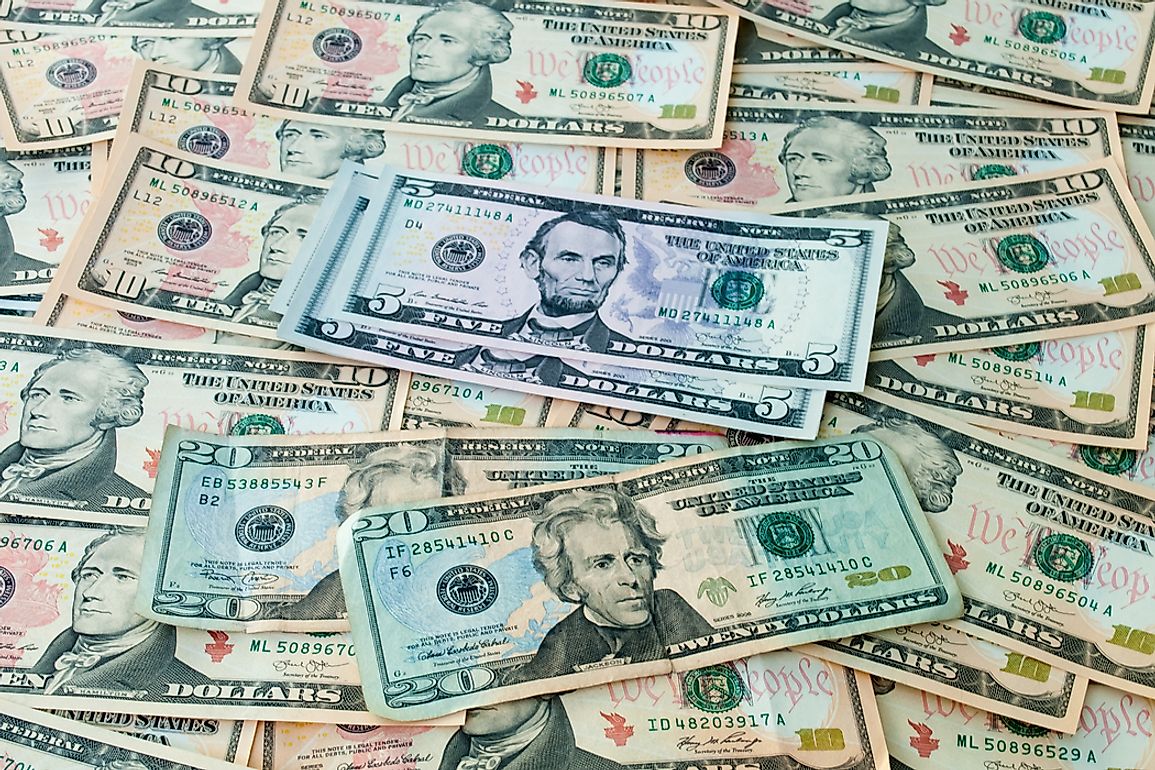Foreign Reserves By Country

When we talk about foreign exchange reserves, we refer to a certain currency held by a government in numerous quantities to be used for particular trade purposes in global transactions. The primary foreign exchange currencies are the US dollar and the euro (the official currencies of the United States of America and of the Eurozone, respectively). Still, for different security and economic purposes, foreign exchange reserves can also be comprised of British Pounds Sterling, the Japanese Yen, and the Swiss Franc, among others. Foreign exchange reserves can also be used to defend local currencies from detrimental fiscal pressures. Currently, around two-thirds of the world’s reserves of foreign currency are held in Asia, particularly among the reserves of China, Japan, Taiwan, Hong Kong, and South Korea.
The Importance of these Reserves
The gold reserves of a country are also very important for the security of its economy. This is due in large part to gold’s limited nature (e.g. it can’t be artificially produced), so the value of gold doesn’t follow the same pattern as the value of foreign exchange reserves. Therefore, the reserves of foreign exchange and gold held together by a country are much more stable than the reserves of gold or the reserves of foreign exchange held separately, as the reserves of gold can be used to fund liquidity emergencies or used as assistance to complement foreign exchange interventions. Due to such reserves’ importance in the global financial sectors, we have analyzed the countries with the largest foreign exchange and gold reserves.
China
China boasts the largest foreign exchange and gold reserves in the world, which equals $3,109,700 USD, according to the International Monetary Fund. China is currently the second-largest economy in the world, but still remains classified as a developing country, with incomplete market reforms and a relatively low income per capita. The prevalence of poverty is another issue in China, with the country ranking high in inequality. China’s recent rapid economic growth didn’t bring wealth to all, and rather high inequality among the population, environmental sustainability challenges due to rapid urbanization, and external perceptions are all challenges to be overcome by the Chinese moving forward. Besides, China also has to better confront the migration of its labor force as well as the demographic pressures related to an increasingly older population.
Japan
Japan, with foreign exchange and gold reserves of 1,256,018 US million is the third-largest economy in the world. The island nation also plays a considerable role on the scene of the international financial community. In fact, Japan is one of the major aid donors and a primary source of global capital and credit.
Important, Yet Limited, Indicators
Switzerland, with 800,389 US million, Saudi Arabia, with 506,400 US million, and Taiwan, with 459,879 US million also make up the top 5 countries with the largest foreign exchanges and gold reserves in the world. As many will note, it takes much more than foreign exchange and gold reserves to guarantee the wealth of the society. For example, this can overlook important factors such as income inequality and cost of living, and our leaders may in fact receive their rankings in large part due to their handling of finances for individuals, businesses, and governments of other countries, and thus much of the wealth indicated actually lies ‘offshore’. Indeed, these countries typically do lead the world in international banking as well. Still, these financial indicators serve as fairly effective metrics of wealth comparison between nations regardless.
Foreign Exchange and Gold Reserves By Country
| Rank | Country | Foreign Exchange Reserves (USD, Millions) |
|---|---|---|
| 1 | China | 3,109,700 |
| 2 | Japan | 1,256,018 |
| 3 | Switzerland | 800,389 |
| 4 | Saudi Arabia | 506,400 |
| 5 | Russia | 460,300 |
| 6 | Taiwan[6] | 459,879 |
| 7 | Hong Kong | 431,900 |
| 8 | India | 401,790 |
| 9 | South Korea | 401,100 |
| 10 | Brazil | 379,444 |











